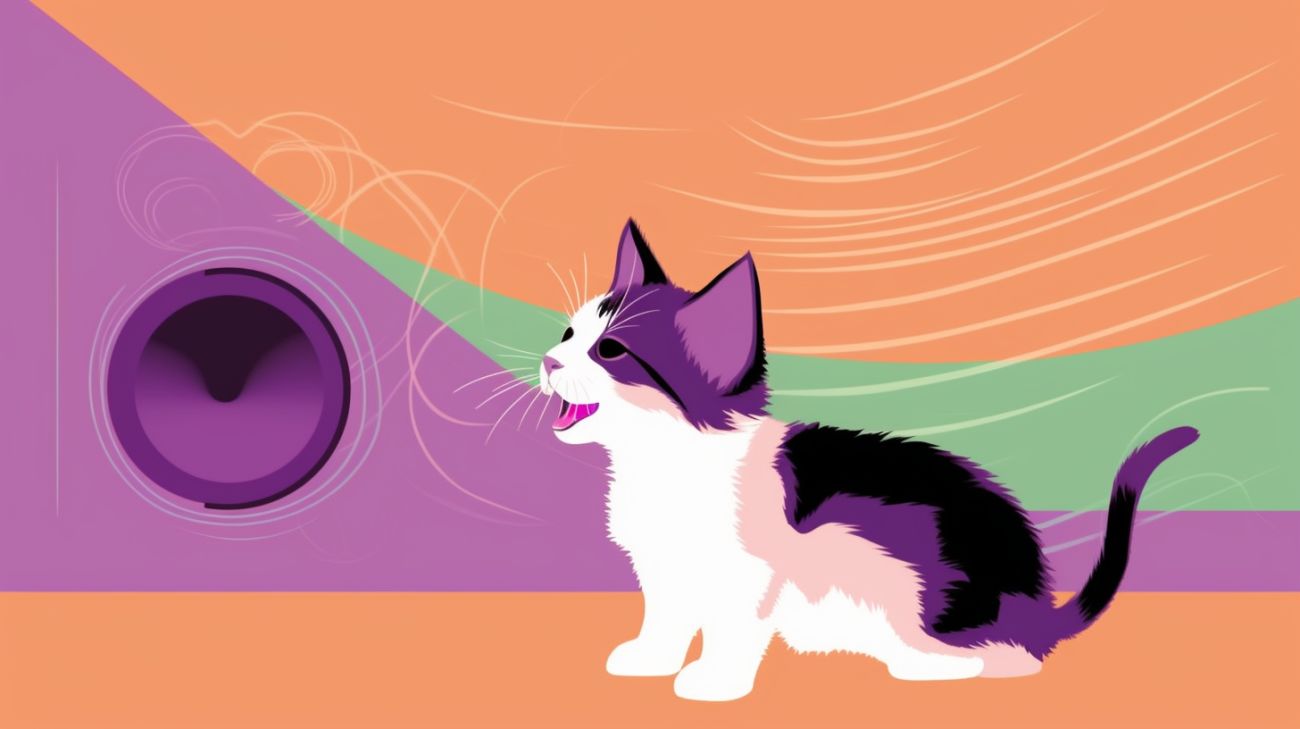Key takeaways
Each cat sound means something different. While you may think you can communicate with your kitty by imitating them, it's highly unlikely they'll recognize the sounds.
However, cats have very impressive homing abilities thanks to their incredible hearing and sense of smell. This is why using sound is essential when looking for your lost pet.
Three important sounds that attract lost cats are their cat food, their name, and familiar household sounds. We'll be exploring these in more detail to help you attract your lost kitty.
Quick Navigation
3 Sounds to attract cats when you're searching for them
1. Rattling cat food

2. Calling their name
3. Familiar household sounds

Cat sounds and what they mean
Cat meow
High-pitched meow: Often means they are startled or hurt (source).
Low-pitched meow: Signals that they are becoming aggressive or angry, often towards other animals.
Short meow: Experts have agreed that a short meow is a way cats greet their owners (source).
"Our kitties see us as their parents, meaning they meow even in adulthood to communicate their needs with us."

Purring
Self-soothing: There has been some research that suggests cats may purr to try and relax (source). This could come after injury or sickness, so always be observant, even if you think your kitty is blissed out.
Wanting something: While you may think most purring sounds the same, the frequencies differ depending on the mood of the cat. If they want food, the frequency is usually higher and more demanding.
Hissing
Warning: A cat may hiss if they're warning you or other animals to stay away or stop interacting with them.
They are hurt: If your cat is in pain or has just received an injury, their natural reaction may be to hiss (especially if you accidentally touch a sensitive area).
Stress: Unwanted attention, loud noises, or new visitors and pets can stress your kitty out, resulting in more hissing.
Protective: If your cat has recently given birth, it's likely they'll be very protective of their kittens. Make sure you don't handle them too early, or you'll risk a hiss (source).
Can you imitate cat sounds to communicate with them?

FAQs
How do you call a cat back home?
The best way to call a cat back home is to repeatedly call their name and shake their food bag. You can also leave their litter box and blankets outside to help them smell their way home too.
What sounds interest cats?
Cats can recognize vocal patterns, so the sound of your voice will be most interesting to them. Alongside this, the sound of food tins opening and bags shaking will also interest them.
Do cats leave home and never return?
Yes, some cats do leave home and never return. This is very rare and is usually because they have recently moved house and gotten lost, become frightened in their current home, or become sick and have run away to find a place to die peacefully.
How do you call a cat to come?
The best way to call a cat to come to you is to get low to the ground so you seem less threatening, extend your arm and make a 'ps ps ps' sound. Don't be too loud or pushy, and respect the cat's decision if they don't want to come to you.
How far can cats smell home?
Cats can smell a scent from 4 miles (6.5km) away! This means the smell of their home can help them find their way back after a long adventure.
How do you attract a scared cat?
To attract a scared cat, you need to stay calm. Cats will be able to sense if you feel agitated and will be reluctant to come to you. Don't pressure the cat to come to you if they are scared. Instead, sit down near them and gently call them to you. Patience is key.
What attracts cats the most?
What attracts a cat most depends entirely on the cat. However, the majority of cats will be most attracted to the smell and sound of food.



